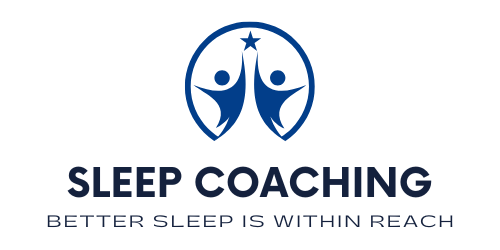Staying hydrated is essential for overall health, but it also plays a critical role in supporting restful sleep. Dehydration can disrupt sleep, leading to nighttime awakenings, dry mouth, and muscle cramps, all of which impact sleep quality. However, excessive hydration close to bedtime can lead to frequent trips to the bathroom, further disturbing sleep. Here’s how hydration affects sleep and tips for maintaining an optimal balance to improve rest.
How Hydration Affects Sleep
- Body Temperature Regulation
- How It Works: Proper hydration helps regulate body temperature, supporting the natural cooling process that occurs during sleep. Dehydration can lead to overheating or fluctuations in body temperature, disrupting the sleep cycle.
- Impact: With sufficient hydration, the body maintains a stable temperature, allowing for deeper and more restorative sleep. Dehydration can make it harder to stay comfortable, leading to fragmented sleep.
- Saliva Production and Dry Mouth Prevention
- How It Works: Hydration supports saliva production, which keeps the mouth and throat moist. Dehydration can lead to a dry mouth and throat, which can cause discomfort and make it harder to sleep soundly.
- Impact: Dry mouth often results in waking up thirsty during the night, which can disrupt sleep and lead to a poor night’s rest.
- Prevention of Muscle Cramps
- How It Works: Electrolytes, particularly sodium, potassium, and magnesium, are necessary for muscle function, and staying hydrated helps prevent cramps. Dehydration can lead to muscle cramps or “charley horses” at night, interrupting sleep.
- Impact: When muscles are properly hydrated, nighttime cramps are less likely, allowing for uninterrupted rest.
- Support for Cognitive and Mood Stability
- How It Works: Hydration helps keep the brain functioning optimally, impacting cognitive performance and mood. Dehydration can lead to feelings of fatigue, anxiety, and irritability, which can make it harder to relax and fall asleep.
- Impact: Proper hydration supports a calm, clear mind, setting the stage for better sleep quality and emotional stability.
Finding the Right Hydration Balance
While hydration is essential for sleep, drinking too much liquid too close to bedtime can lead to frequent urination, which interrupts sleep. Finding the right balance involves staying hydrated throughout the day and moderating fluid intake in the hours before bed.
- Hydrate Consistently Throughout the Day
- How It Helps: Drinking water regularly during the day ensures that the body is well-hydrated without the need to “catch up” on fluids before bed.
- Tip: Aim to consume most of your daily water intake in the morning and afternoon, reducing intake in the evening to prevent late-night bathroom trips.
- Limit Fluid Intake 1-2 Hours Before Bed
- How It Helps: Limiting liquids close to bedtime reduces the likelihood of nighttime awakenings for bathroom breaks.
- Tip: Have your last glass of water about 1-2 hours before bed. If you get thirsty at night, take small sips instead of drinking a full glass.
- Focus on Electrolyte-Rich Foods and Beverages
- How It Helps: Including foods rich in electrolytes, like bananas, spinach, and nuts, supports hydration and muscle health, reducing the risk of cramps.
- Tip: If you sweat heavily or are active, consider adding a small amount of an electrolyte-rich drink earlier in the day to replenish lost minerals without needing extra water late at night.
- Monitor Caffeine and Alcohol Intake
- How It Helps: Both caffeine and alcohol have dehydrating effects, which can increase the need for water and disrupt sleep. Caffeine is also a stimulant that can interfere with sleep quality.
- Tip: Limit caffeine to the morning, and if you choose to drink alcohol, try to do so earlier in the evening, balancing it with water to maintain hydration.
- Consider a Humidifier for Dry Environments
- How It Helps: In dry climates or during winter, using a humidifier adds moisture to the air, helping prevent dehydration-related dry mouth and throat.
- Tip: Place a humidifier in your bedroom to maintain optimal humidity levels, reducing the need for extra water at night.
FAQ: Common Questions About Hydration and Sleep
- How much water should I drink daily for optimal hydration?
- General guidelines suggest about 8 cups (64 ounces) per day, but individual needs vary based on activity level, body size, and climate. Listen to your body’s signals and drink when thirsty.
- Does dehydration impact REM sleep?
- Dehydration can cause discomfort and disrupt overall sleep cycles, including REM sleep, by leading to more frequent awakenings. Staying hydrated helps support a consistent and uninterrupted sleep cycle.
- Is it okay to drink water if I wake up thirsty during the night?
- Yes, if you wake up thirsty, take small sips rather than drinking a full glass to prevent frequent bathroom trips. Try adjusting hydration habits during the day to minimize night thirst.
Summary
Hydration is essential for maintaining sleep quality, as it supports body temperature regulation, prevents dry mouth and muscle cramps, and aids cognitive function. By hydrating consistently throughout the day and moderating fluid intake before bed, you can find a balance that supports restful, uninterrupted sleep. Simple adjustments to your hydration habits can make a significant difference in how well you sleep, contributing to overall health and well-being.
Stone Evans is the founder of SleepCoaching.com which has become one of the most popular destinations online for people seeking better sleep. Stone started developing this website after realizing his own sleep struggles and then beginning an intensive period of study (which included professional sleep coach training) and ongoing lifestyle changes to improve and optimize his sleep.
Now through in-depth articles from sleep experts around the world, the internet's leading and most comprehensive sleep coaching directory, quantitative sleep product reviews and Stone's personal daily sleep tracking journey, visitors to our website regularly report gaining information and insights that are helping them achieve better health, better sleep and a better quality of life.
